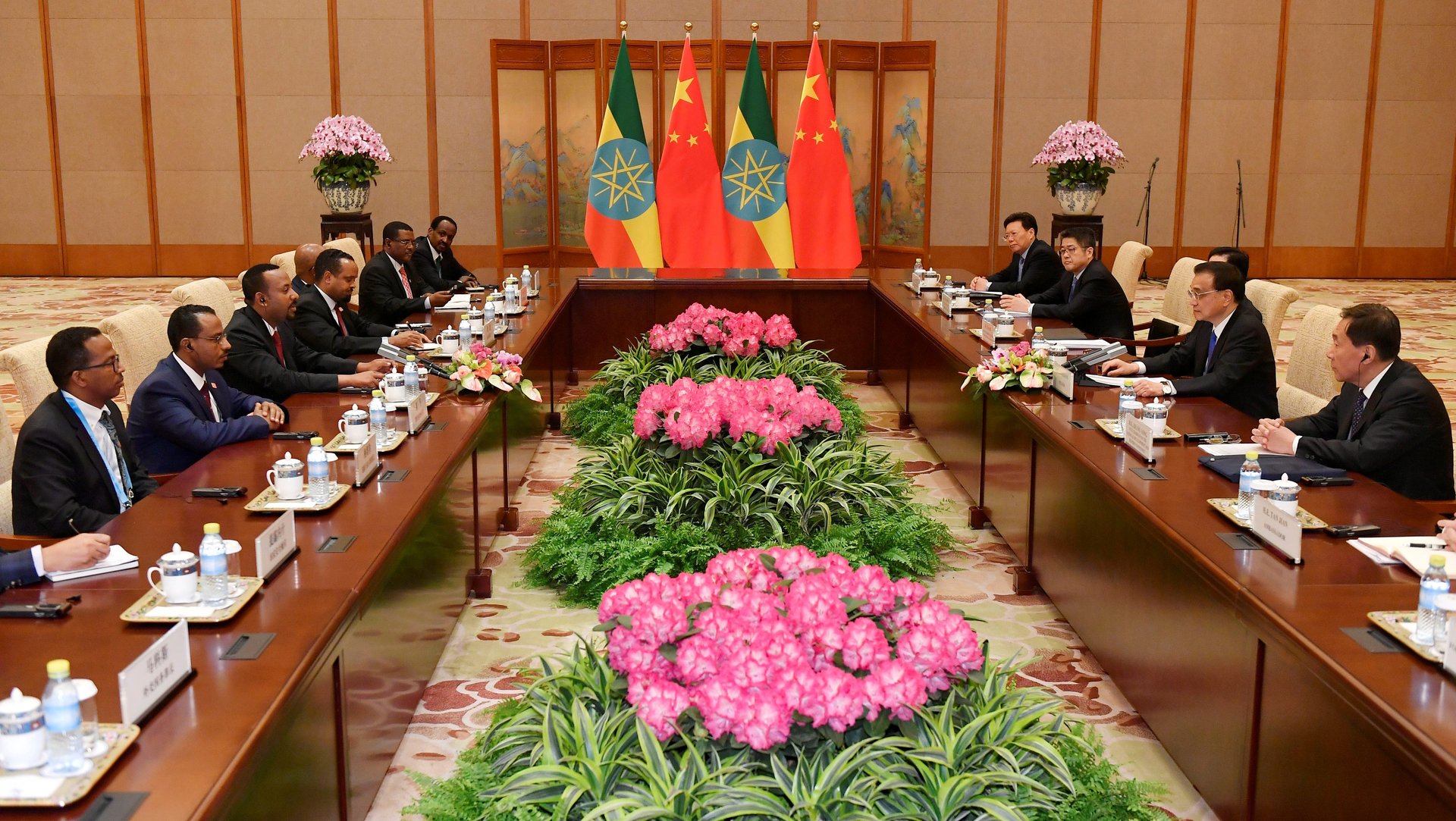What African countries should be fighting for in negotiations with China
Much international coverage of Ethiopia last week focused on its request for debt relief under a new framework agreed to last year by the Group of 20 countries, including China. The initiative is designed to help poorer countries deal with the impact of the Covid-19 pandemic.


Much international coverage of Ethiopia last week focused on its request for debt relief under a new framework agreed to last year by the Group of 20 countries, including China. The initiative is designed to help poorer countries deal with the impact of the Covid-19 pandemic.
While the question of how Ethiopia deals with its debts—particularly through this program—is extremely important, it is just one aspect of the country’s recovery from the pandemic, and future prosperity. A major challenge is how it can increase trade and exports, which currently contribute only 7.9% to its GDP, one of the lowest in Africa. This is a major goal of Teshome Toga, Ethiopia’s ambassador to China for the last two years.
In an exclusive interview for our Africa Unconstrained: Perspectives on the Continent’s New Era video series, in partnership with Quartz Africa, the ambassador discussed the Ethiopian government’s strategy for working with China, and its focus on increasing and adding value to exports to the country.
How and why? The Beijing-based ambassador is keenly aware that China’s new Covid-19 domestic recovery strategy, which focuses on what the government calls “dual circulation,”could have big implications for African countries’ trade flows. China hopes with this strategy to grow its domestic consumer market as well as high-tech manufacturing, and reduce the country’s dependency on exports of low-value manufactured goods, and on singular sources of imports into China.
This new strategy could be positive for Africa, in contrast to countries that currently export value-added, high-tech products to China, such as the US, Germany, France or the UK. In 2018, African countries made up just 4.1% of China’s imports, primarily raw natural resources and agricultural goods. The continent may benefit from the trade diversification and consumer market growth the new policy implies.
At least that’s what Toga is betting on whenever he travels across China, or joins live-streaming sessions to promote Ethiopia as a trade and investment destination to Chinese consumers, manufacturers, and local government leaders.
In our interview, Toga, who was previously Ethiopia’s public enterprises minister, talks candidly about the challenges the country is currently facing in paying for the country’s continuing Covid-19 response, as well as the government’s aspirations to attract more concessional loans from China and more direct investment from Chinese companies (the interview took place prior to Ethiopia’s application to the G20 program.) The need is stark. For all its growth over the last decade, 82% of the Ethiopian population still don’t have access to the internet, 70% don’t have access to drinking water, while 55% don’t have access to electricity.
The ambassador also shares his view on the importance of African countries working together collaboratively to get the most out of the relationship with China and other development partners.
This interview is the second in our Africa Unconstrained video series, following our first on the African debt narrative. Throughout 2021, Development Reimagined and Quartz Africa will be sharing insights from key African thought leaders on some of the trickiest questions of African economics, and the relationship between African countries and China.
Watch the interview with Ambassador Toga here and visit the bespoke website, www.africaunconstrained.com, for more information.